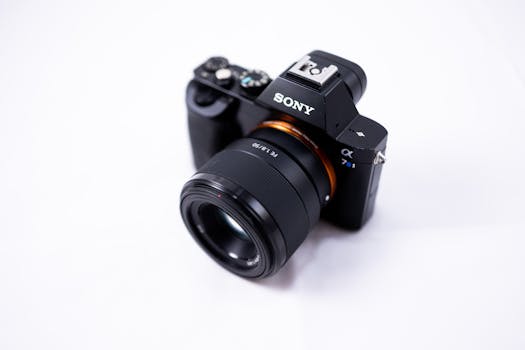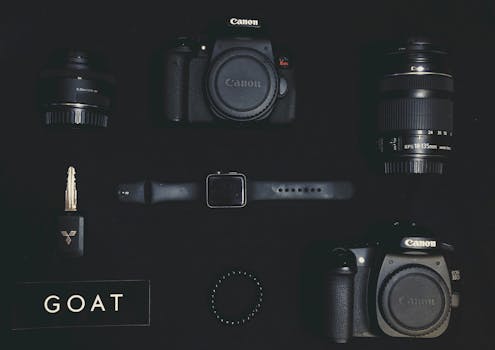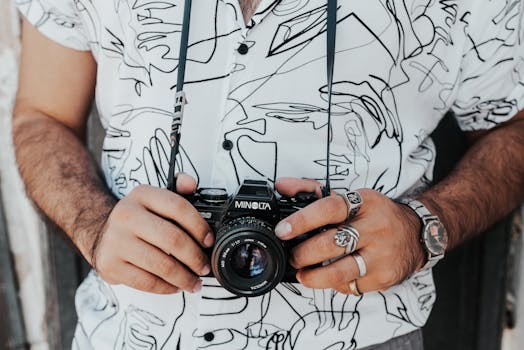Takeaways

Introduction to the World of Digital Cameras

Current Trends in Digital Cameras

1. Enhanced Image Quality
One of the most significant advancements in digital cameras is the improvement in image quality. Manufacturers are incorporating larger sensors, improved lens technology, and advanced image processing algorithms to deliver stunning results. Cameras are now capable of capturing high-resolution images even in low-light conditions, making them suitable for various photography styles.
2. Connectivity and Smart Features
As smartphones dominate the photography landscape, digital cameras are integrating more connectivity options. Wi-Fi, Bluetooth, and NFC capabilities allow photographers to share images instantly on social media or transfer photos to their devices without the hassle of cables. Additionally, many new models offer smartphone control, where users can adjust settings remotely and capture images with ease.
3. Compact and Lightweight Designs
Portability remains a priority for many photographers. The latest digital cameras are designed to be lightweight and compact, making them easy to carry around. This trend is particularly beneficial for travel photographers who need to pack light while still capturing high-quality images.
Top Digital Cameras of 2023

1. Canon EOS R6 Mark II
The Canon EOS R6 Mark II is a powerful mirrorless camera that excels in both photo and video capabilities. With a full-frame sensor and impressive autofocus system, this camera is perfect for both amateur and professional photographers. The R6 Mark II also features in-body image stabilization, making it easier to capture sharp images in challenging conditions.
2. Sony A7 IV
The Sony A7 IV builds on the success of its predecessor, offering enhanced image quality and advanced video features. With its 33-megapixel sensor and 10-bit video recording capabilities, the A7 IV is ideal for content creators who require versatility in their camera systems. Additionally, the camera’s impressive battery life ensures that you won’t miss a shot during a long shoot.
3. Fujifilm X-T5
Fujifilm continues to impress with its X-series cameras, and the X-T5 is no exception. This APS-C mirrorless camera boasts a retro design, making it appealing to photographers who appreciate aesthetics. The X-T5 offers a unique film simulation mode, allowing users to replicate the look of classic film stocks. Its compact size and lightweight design make it an excellent choice for street and travel photography.
Choosing the Right Digital Camera for Your Needs

1. Photography Style
Your photography style will significantly influence your camera choice. For landscape photographers, a model with a high-resolution sensor and excellent dynamic range is vital. On the other hand, wildlife photographers may prioritize autofocus speed and burst shooting capabilities. Identify your primary focus to narrow down your options.
2. Budget
Digital cameras come in a wide range of prices, from entry-level models to high-end professional systems. Establishing a budget upfront will help you choose a camera that meets your needs without breaking the bank. Remember to account for additional costs such as lenses, memory cards, and camera bags.
3. Future-Proofing
Investing in a digital camera is a long-term commitment. Consider models that offer upgrade paths, such as interchangeable lenses and firmware updates. Cameras with strong ecosystems, such as those from Canon, Nikon, and Sony, often provide a wealth of accessories and lenses that can enhance your photography experience.
Conclusion

FAQs
Q1: What is the best digital camera for beginners?
A1: The best camera for beginners is often a compact model or an entry-level mirrorless camera, such as the Canon EOS M50 or Nikon Z50, which are user-friendly and versatile.
Q2: Are mirrorless cameras better than DSLRs?
A2: Mirrorless cameras offer advantages such as lighter weight and faster autofocus. However, DSLRs typically have better battery life and a wider selection of lenses. The choice depends on personal preference.
Q3: How often should I upgrade my digital camera?
A3: There is no set timeline for upgrading your camera. It depends on your needs and advancements in technology. If your current camera no longer meets your requirements, it may be time to consider an upgrade.
Q4: What features should I look for in a digital camera?
A4: Look for features such as sensor size, image stabilization, autofocus performance, and connectivity options. Additionally, consider the camera’s weight and ergonomics, especially if you plan to carry it for extended periods.



